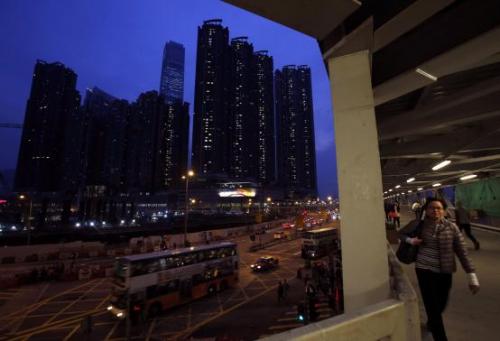One of the primary drivers of the real estate bubble in the past several years, particularly in the ultra-luxury segment, were mega wealthy Chinese buyers, seeking to park their cash into the safety of offshore real estate where it was deemed inaccessible to mainland regulators and overseers, tracking just where the Chinese record credit bubble would end up. Some, such as us, called it “hot money laundering”, and together with foreclosure stuffing and institutional flipping (of rental units and otherwise), we said this was the third leg of the recent US housing bubble. However, while the impact of Chinese buying in the US has been tangible, it has paled in comparison with the epic Chinese buying frenzy in other offshore metropolitan centers like London and Hong Kong. This is understandable: after all as Chuck Prince famously said in 2007, just before the first US mega-bubble burst, “as long as the music is playing, you’ve got to get up and dance.” In China, the music just ended.

But more so than mere analyses which speculate on the true state of the Chinese record credit-fueled economy, such as the one we posted earlier today in which Morgan Stanley noted that China’s “Minsky Moment” has finally arrived, we now can judge them by their actions.
And sure enough, it didn’t take long before the debris from China’s sharp, sudden attempt to “realign” its runaway credit bubble, including the first ever corporate bond default earlier this month, floated right back to the surface.
China’s “Minsky Moment” has finally arrived
Cash-strapped Chinese are scrambling to sell their luxury homes in Hong Kong, and some are knocking up to a fifth off the price for a quick sale, as a liquidity crunch looms on the mainland.
Said otherwise, what goes up is now rapidly coming down.
Wealthy Chinese were blamed for pushing up property prices in the former British territory, where they accounted for 43 percent of new luxury home sales in the third quarter of 2012, before a tax hike on foreign buyers was announced.
The rush to sell coincides with a forecast 10 percent drop in property prices this year as the tax increase and rising borrowing costs cool demand. At the same time, credit conditions in China have tightened. Earlier this week, the looming bankruptcy of a Chinese property developer owing 3.5 billion yuan ($565.25 million) heightened concerns that financial risk was spreading.
“Some of the mainland sellers have liquidity issues – say, their companies in China have some difficulties – so they sold the houses to get cash,” said Norton Ng, account manager at a Centaline Property real estate office close to the China border, where luxury houses costing up to HK$30 million ($3.9 million) have been popular with mainland buyers.

